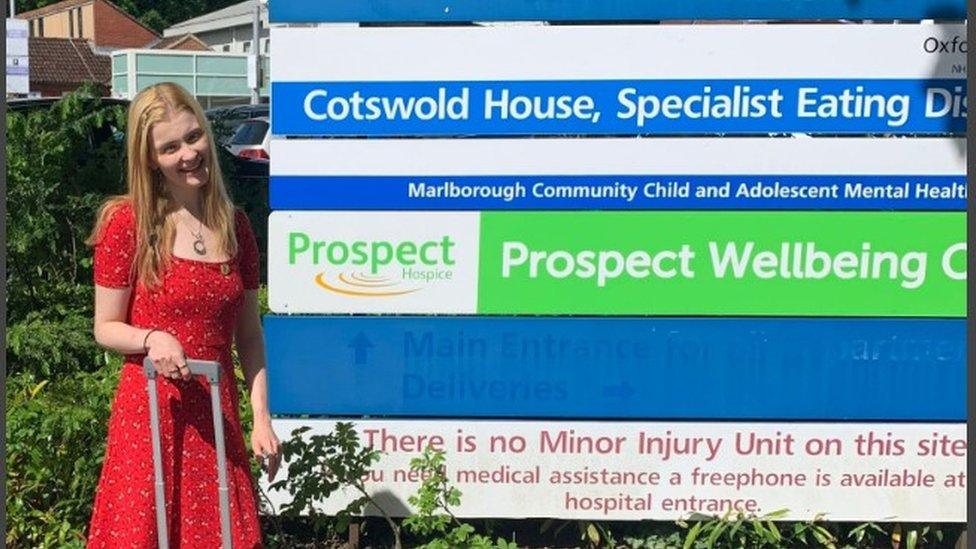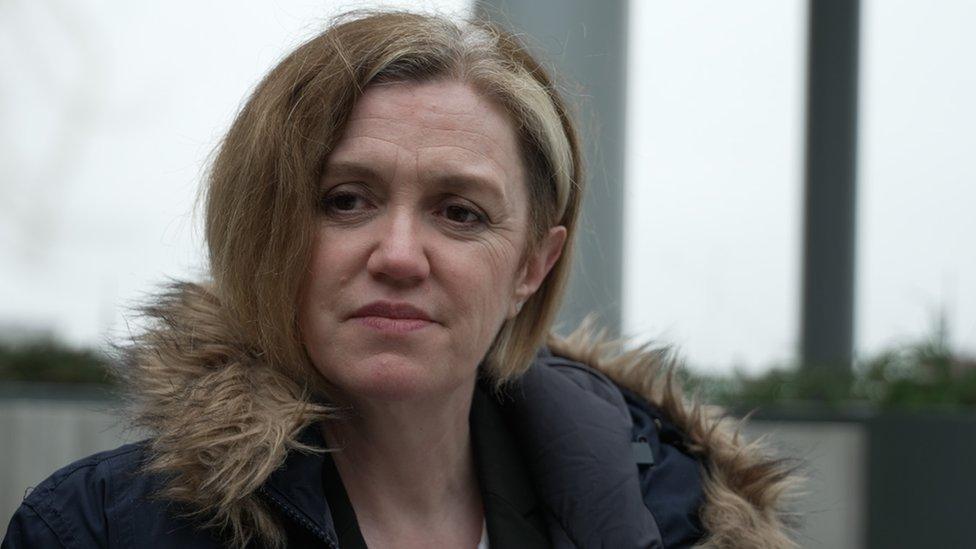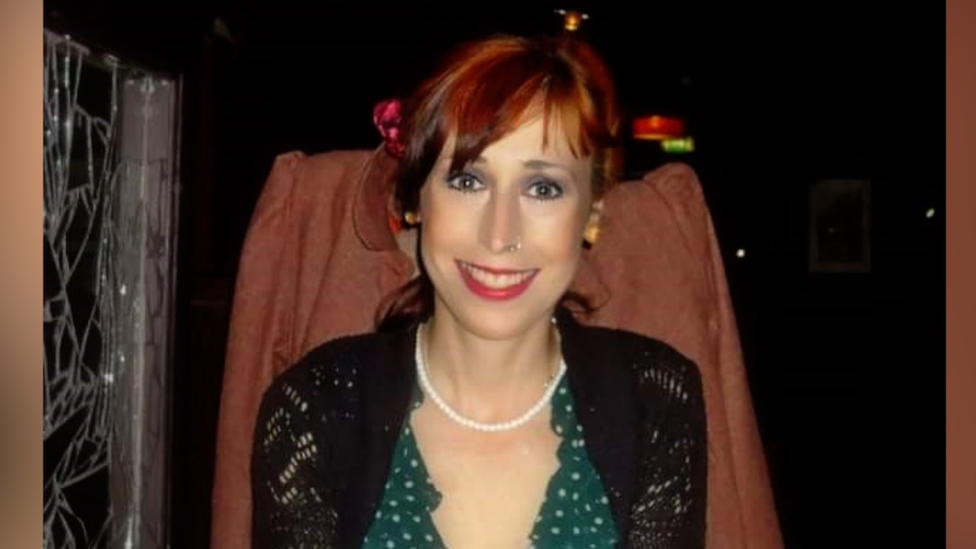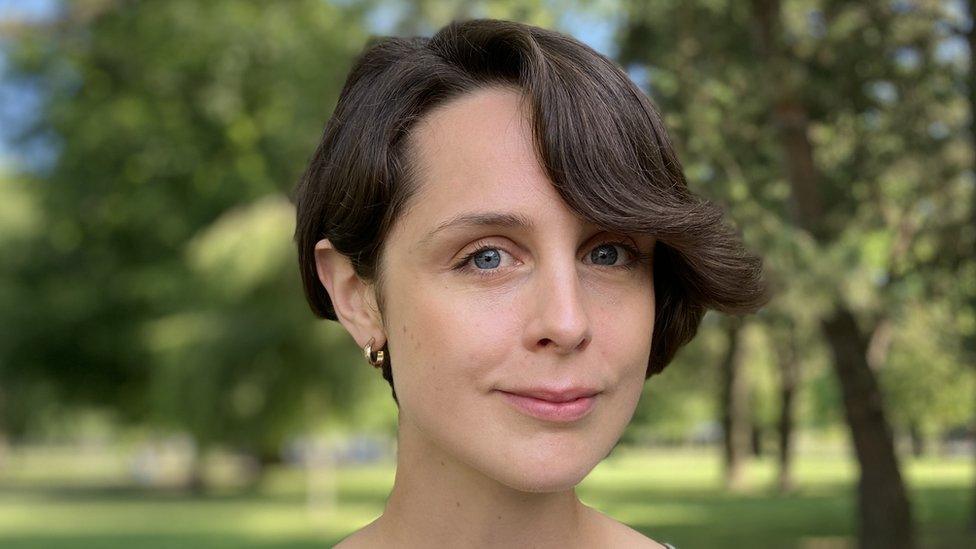Eating disorders: Patients in Wales could be sent to Scotland
- Published

Georgia Taylor has called for specialist centre to be set up in Wales
People with eating disorders in Wales could be sent as far away as Scotland in order to get treatment.
Patients were sent to Cotswold House, a specialist NHS unit in Oxford, but this system ended in August.
Georgia Taylor, 19, from Bridgend, was treated for anorexia there in 2022 but said not knowing where she was going made her feel like "an object".
The Welsh Health Specialised Services Committee (WHSSC) said this was "in line" with other parts of the UK.
Until August, there was a 10-year contract with Oxford NHS Trust, guaranteeing beds for patients from south Wales.
Now patients are assessed on the "greatest clinical need" by an NHS England panel, which then decides where in the UK they will be treated.
Wales does not have an adult inpatient eating disorder unit, with the Welsh government looking into the feasibility of establishing one - something Georgia believes is needed, along with a focus on early intervention.
Dr Isabela Jurewicz, chairwoman of the devolved eating disorder faculty at the Royal College of Psychiatrists, said the new way of placing people meant they would be "negatively impacted" due to the uncertainty of where they will be treated.

Georgia was treated at Cotswold House but had an uncertain wait before being sent there
Georgia said the wait for a bed at a treatment centre was traumatising, but Cotswold House had "really good staff members".
She added: "It was so uncertain where I was going to go. It just made me feel like I was an object. I could have died if it had gone on any longer."
Dr Jurewicz said the end of the Oxford contract meant explaining to patients that doctors did not know where they would be treated, adding "to what is already a really difficult and stressful situation".
She also said there was a "big need" for education about eating disorders.

Georgia says she is "still having to live with my eating disorder to this day"
Georgia said a lack of education at school about eating disorders meant she felt like "it was something I needed to hide or something I needed to be ashamed of".
"I'm still having to live with my eating disorder to this day. I am fighting really, really hard.
"I want to go to university. I want to volunteer abroad I want to continue having a job and enjoy my life.
"But this is still there in my background and I'm still very dependent on the eating disorder and community mental health team for this support."

Jo Whitfield from eating disorder charity Beat says everyone in Wales must able to access specialist treatment at the earliest opportunity
Jo Whitfield from the eating disorder charity Beat said she had heard of patients being sent as far as Scotland for treatment, which was "devastating for patients".
The charity called on the Welsh government to publish a plan with timescales to ensure "everyone in Wales is able to access specialist treatment at the earliest opportunity".
This was echoed by Member of the Senedd Sarah Murphy, the new chairwoman of a cross-party group on eating disorders who has struggled with anorexia herself.
She told Wales Live: "We need timescales now. It's been long enough. Eating disorders and the treatment was in crisis before the pandemic, it's more of a crisis now.
"I was very severely ill and I was days away from being admitted to an adult psychiatric unit at the old East Glamorgan Hospital because we had nothing here in Wales."
The WHSSC said it was looking at paying for beds from the independent sector to provide care "potentially closer to home".
A Welsh government spokesman said it was investing an extra £2.5m in 2022-23, adding: "Most people who need to access services, including in-patient care, will receive this care in Wales and we are also working with NHS Wales to scope the feasibility of a specialist eating disorder unit in Wales.
"We expect all health boards to provide specialist, multi-disciplinary support for people with eating disorders."
For more on this story, watch this episode of BBC Wales Live on iPLayer
- Published27 June 2022

- Published23 June 2022
